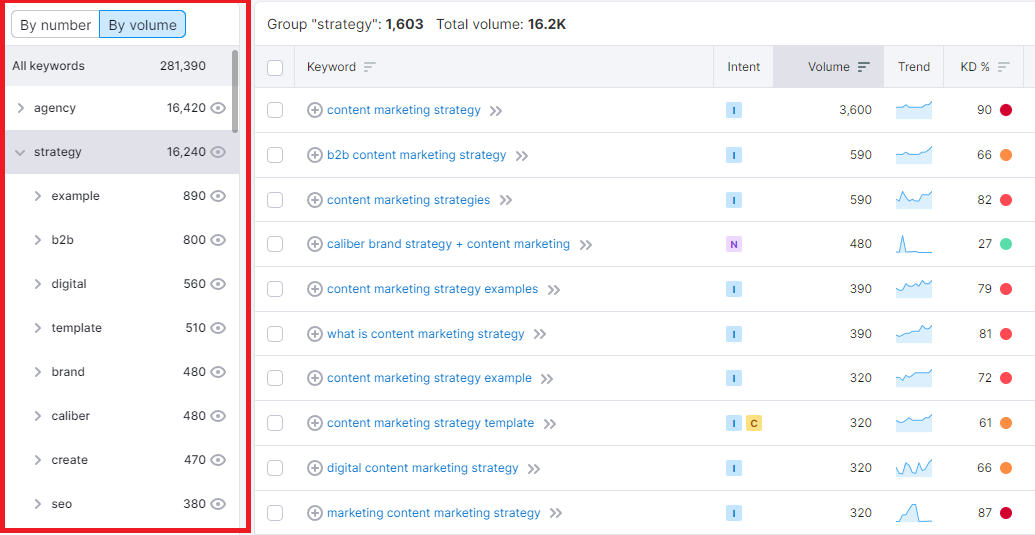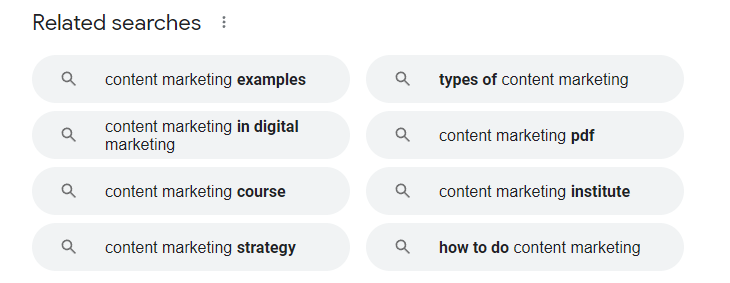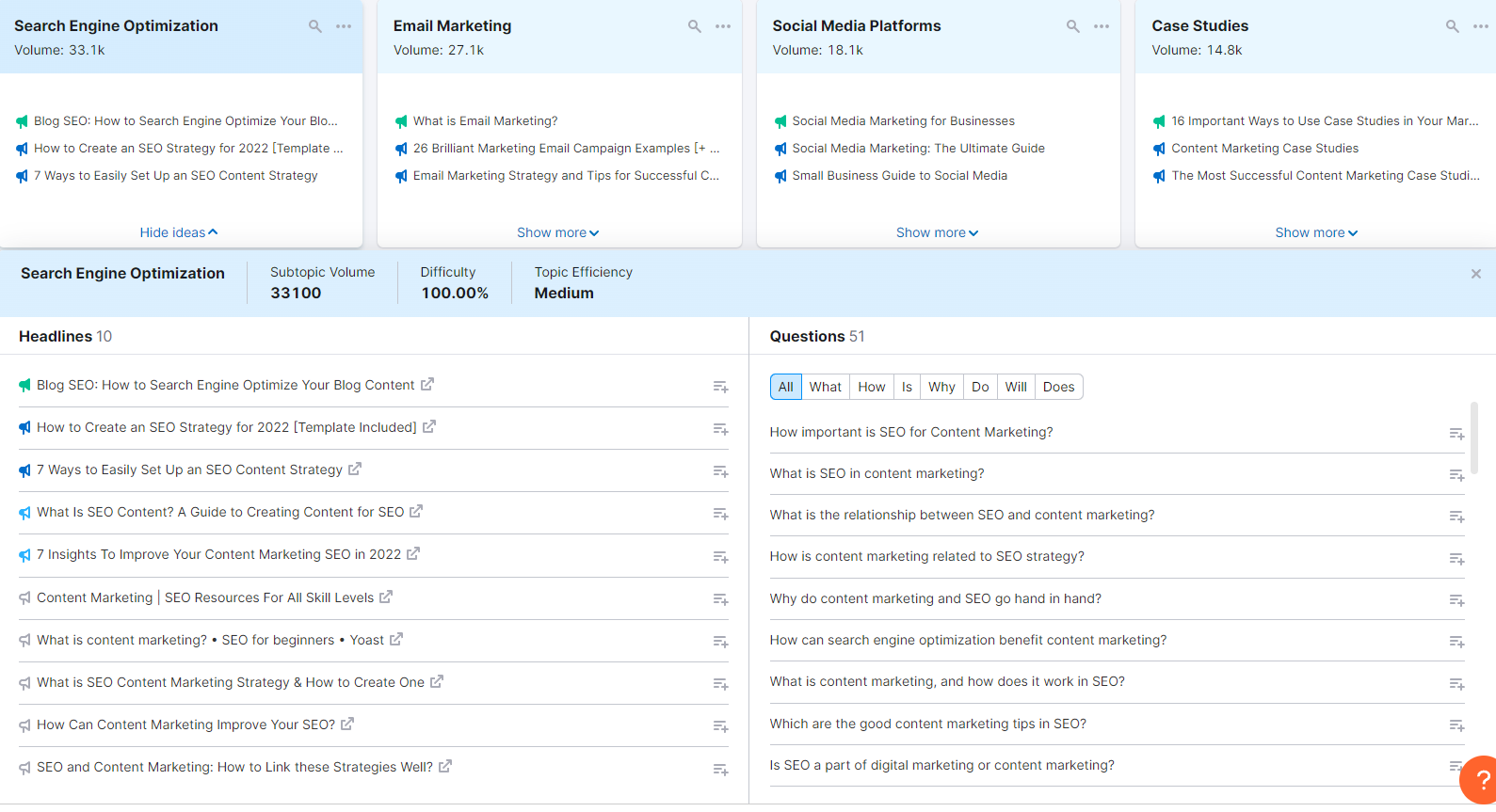Advanced keyword research is essential for several reasons.
First, advanced keyword research helps you learn more about your audience and discover what topics and keywords are driving the most traffic and buzz.
Secondly, advanced keyword research helps you select the right keywords to optimize your content and rank higher in search engines.
If executed properly, your advanced keyword research strategy can help make you a content marketing thought leader and yield business opportunities for your website.
Here are 15 advanced keyword research tactics to supercharge your business or personal blog.
1. Leverage Your Competitor’s Success
Competitor research tools like SEMrush and Ahrefs allow you to analyze a competitor’s domain and see which pages drive the most traffic. For example, we like to use the Organic Research tool on SEMrush to see which pages have the highest total traffic percentage and then analyze which keywords drive the most traffic to those pages.


Tools like SEMrush will give you a list of every single keyword that the site ranks for. Google Ads also allows you to perform this but won’t give you the position they rank.
SEMrush also gives you a keyword difficulty score and its monthly traffic volume so you can target less competitive keywords.
2. Find LSI Keywords
Latent semantic indexing (LSI) is an advanced keyword research tactic that allows you to discover related keywords to your seed keyword. Many tools employ some form of latent semantic indexing, but SEMrush allows you to uncover words through carefully segmented subtopics related to your seed keyword.
If you want to be good at content marketing, you need to identify which keywords make the most sense for any given topic and which are best reserved for their own topics.
3. Filter Keywords by Intent
Keyword intent is important for understanding why users search for a keyword. There are generally four types of intent we separate keywords by:
- Informational: Queries looking for more information on a subject (ex., What is content marketing?)
- Commercial: Queries shopping around for products or services (ex., Content marketing services)
- Navigational: Queries looking for specific pages on a website (ex., Content marketing awards)
- Transactional: Queries looking to complete a specific action (ex., content marketing near me)
Use SEMrush to filter keywords by intent inside its Keyword Magic Tool.
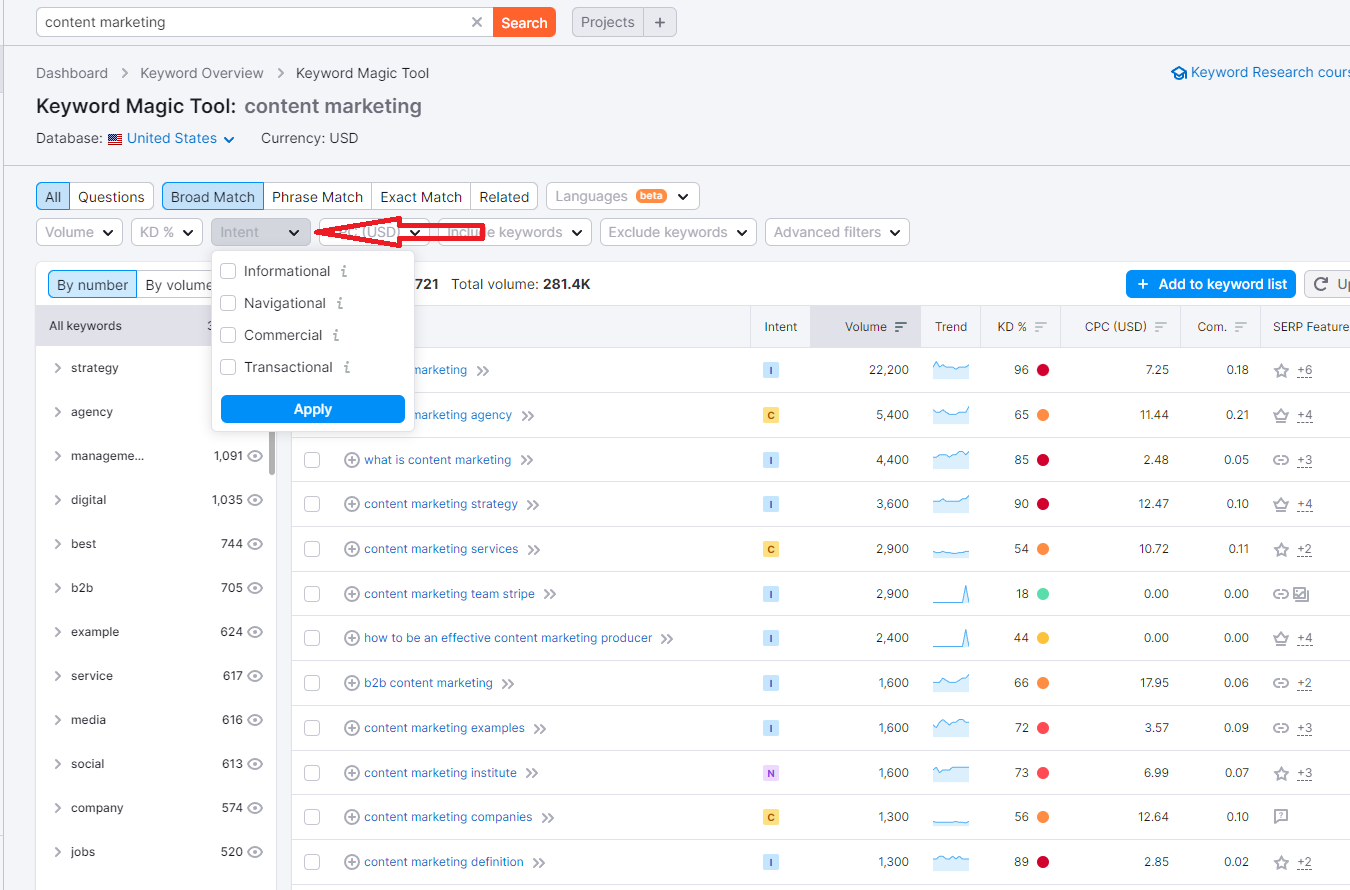
You can filter keywords by intent using Google Ads by filtering for the highest top-of-page bid for commercial keywords competitors are bidding on.
4. Filter Keywords by Competition
Reddit is great, but it’s general.
The best keyword strategies are ones that work well for your business. While focusing on bulk keywords like “content marketing” will yield better results than anything else you can do, it’s also not very realistic.
Instead, filter your keyword searches by competitiveness to find keywords that can make an immediate impact by ranking for them.
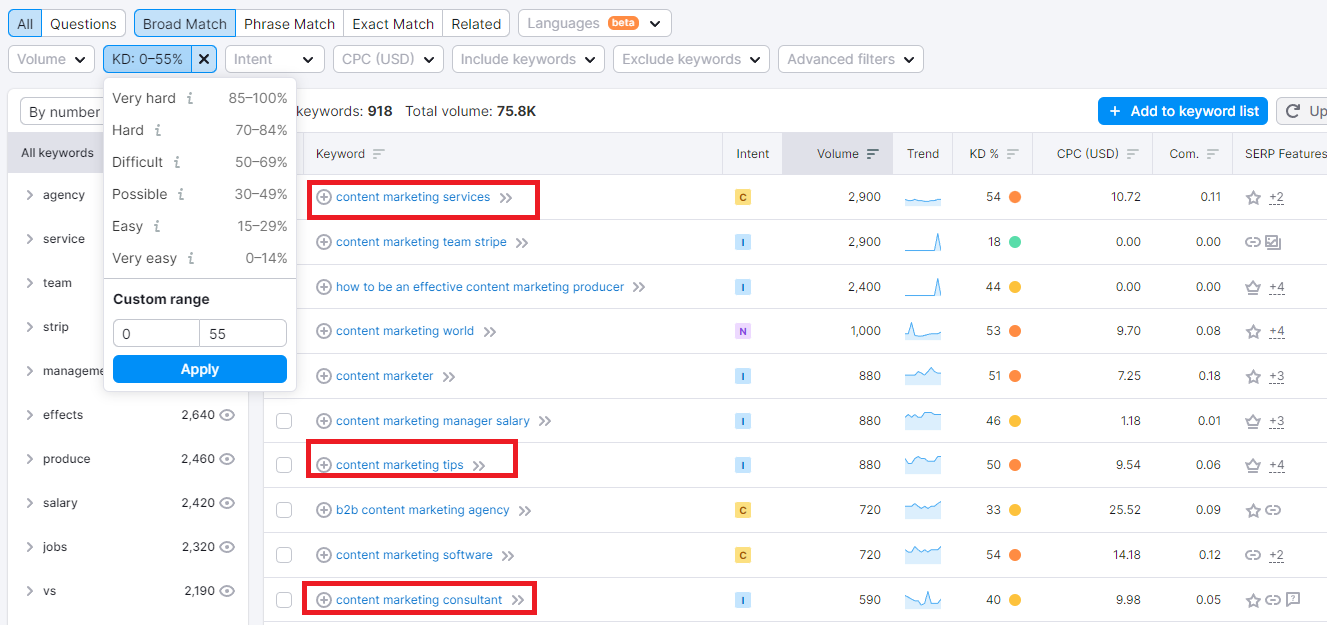
Filtering keywords by bid in Google Ads will achieve the same results.
5. Use Question Phrases for Subtopics
If you’re writing long-form or evergreen content, then making your post as thorough as possible will help it rank exponentially higher. One strategy most people use is the skyscraper, but I find that gathering as many questions and subtopics as possible tends to yield the highest results.
Use SEMrush to filter keywords by question phrases that can be answered through your posts or even serve as standalone posts on their own.
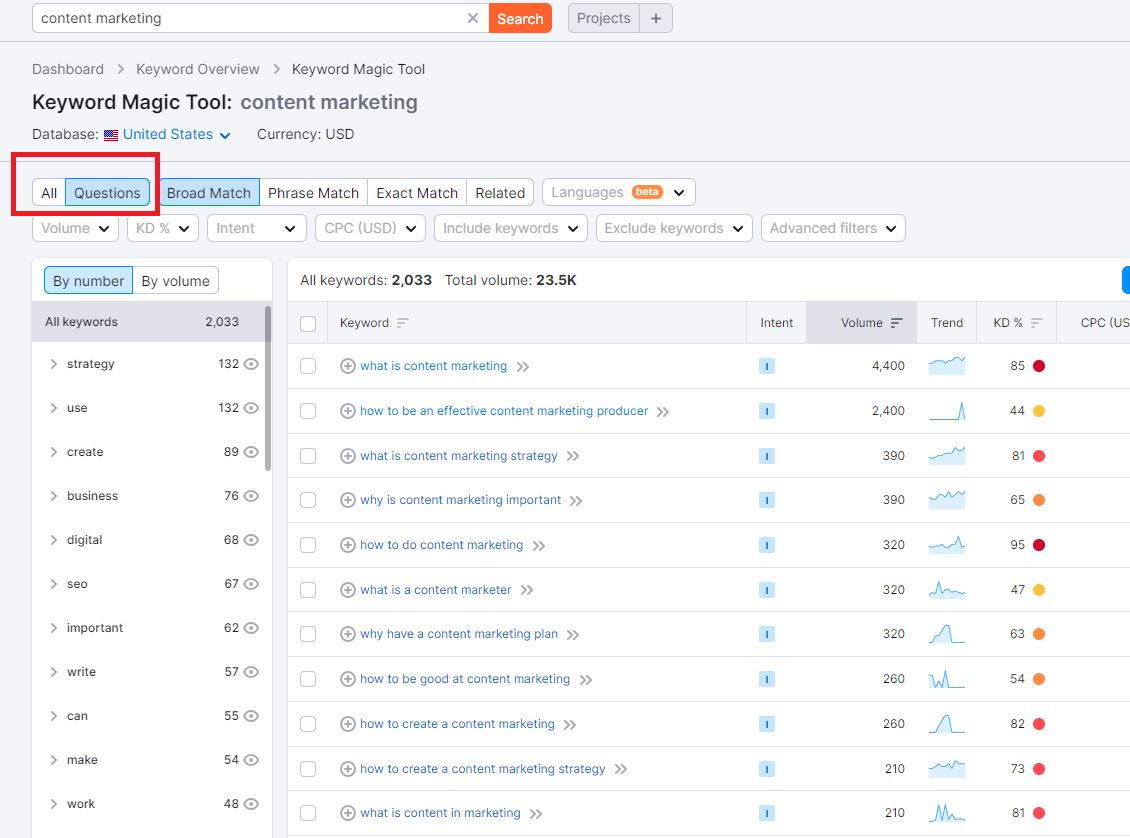
Be sure to also type in your seed keyword and see what questions pop up on Google’s SERPs.
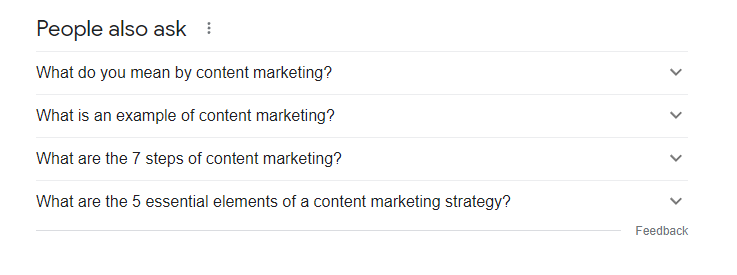 6. Leverage Google SERPs
6. Leverage Google SERPs
In addition to question phrases, Google’s search engine result pages provide you with all of the information you need to see what users and Google value as the best results for their searches.
There are several areas you can uncover new keywords, including:
- Ad Results at the top
- Knowledge Panel
- People Also Search For
- People Also Ask
- Related Searches at the bottom
You could even just take the top results for your seed keyword, run each URL through your advanced keyword research tool and see what other keywords those pages rank for.
7. Use Google Image Search
We often preach the importance of alt text, but Google images search is a hidden gem and advanced keyword research tactic not many people discuss. Google’s image search naturally leads you to keyword ideas without trying. Not only will you find related keywords but also topics that relate directly to the keyword from several different angles.
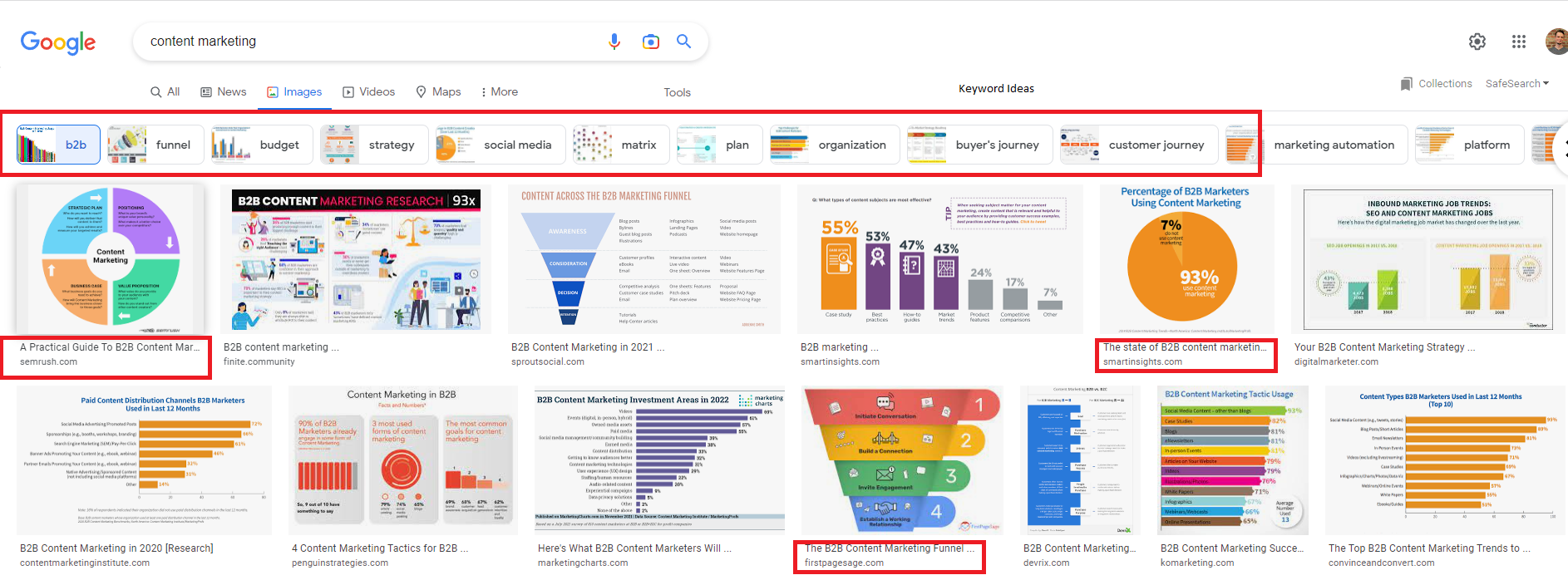
8. Search for Trending Topics
Google Trends is a popular resource to search for trending keywords in your industry and view their popularity over time.
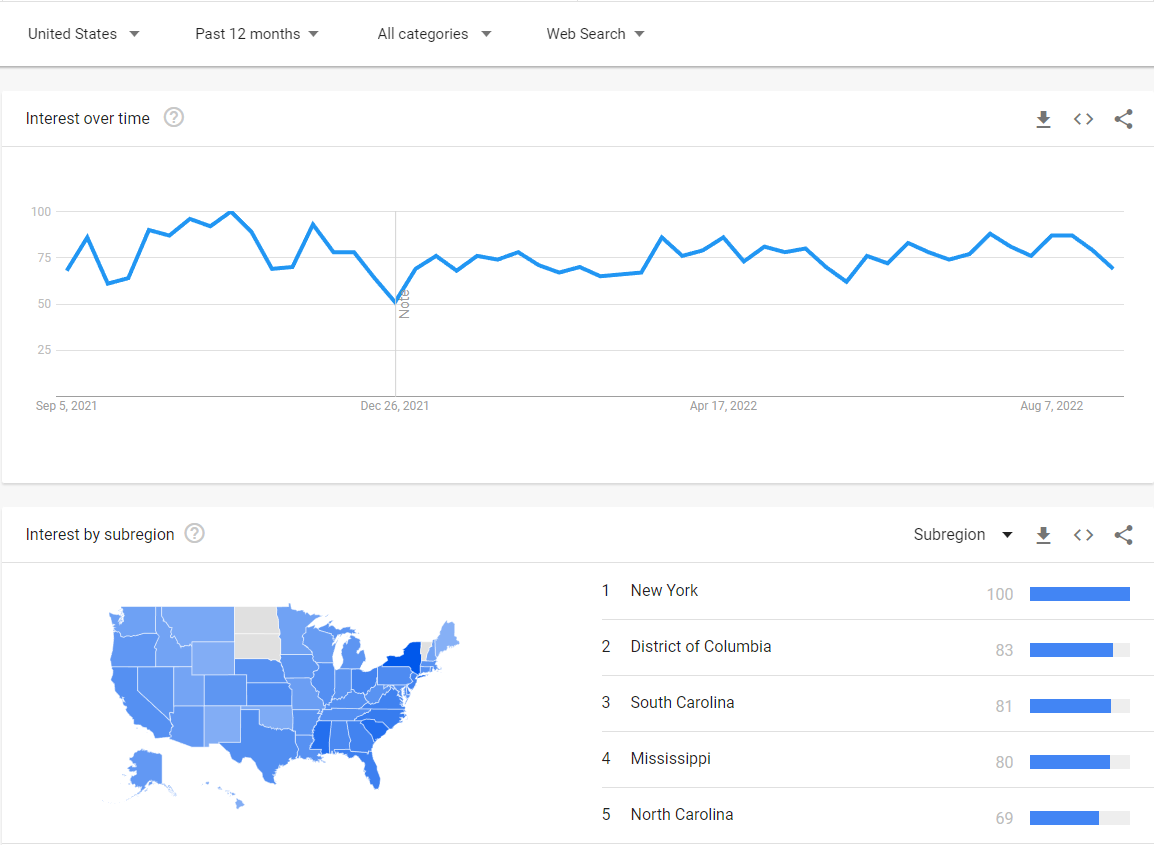
However, if you want to get more granular, use a tool like SEMrush that lists trending subtopics related to your topic.
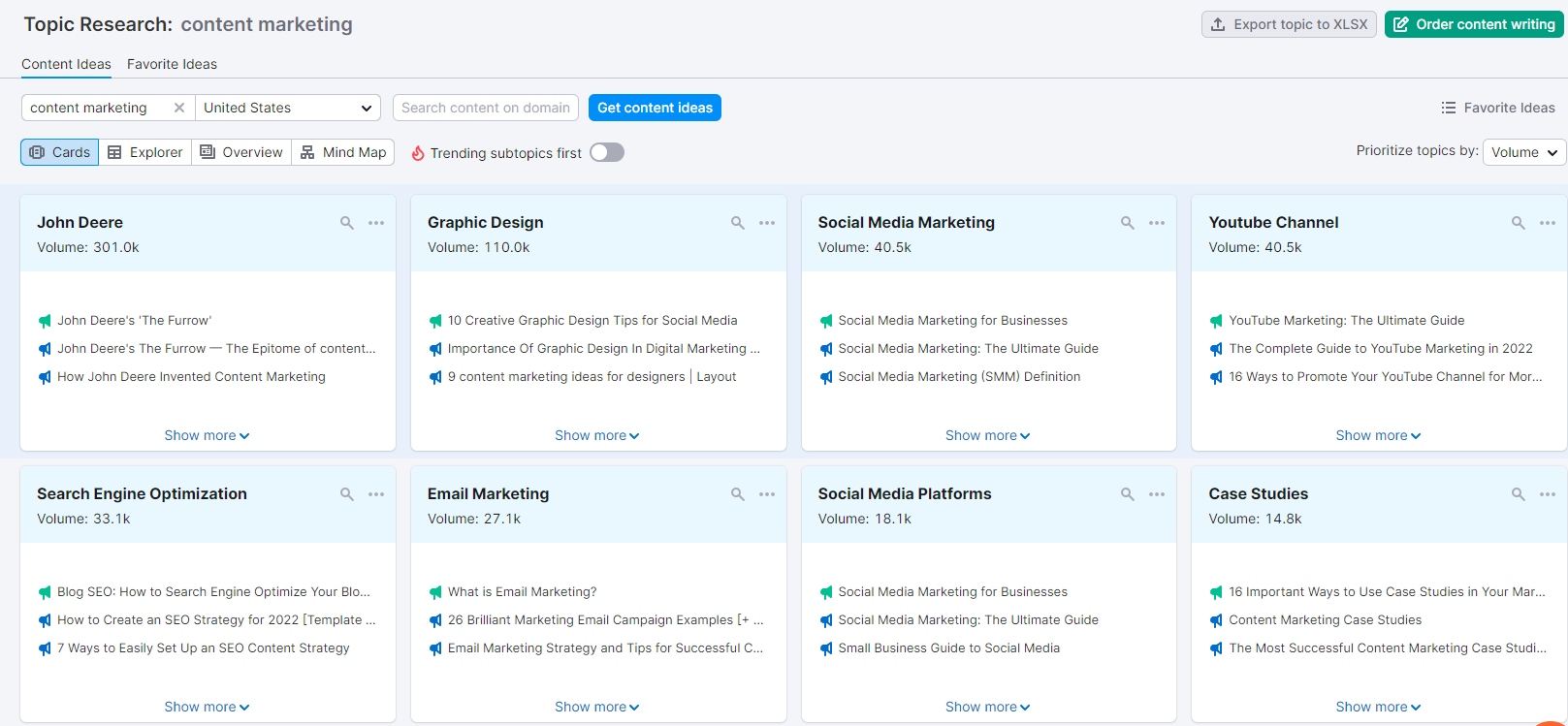
Open up one of these cards to discover some of the top trending articles and related questions. I like to take the URL of these pages, run them through SEMrush, and view their keywords using the Organic Research tool.
9. Look on Forums for Secondary Topics
After you brainstorm what you would like to rank for and do your initial research, you may think that you have created a comprehensive list of possible keywords, but Google AdWords can only take you so far.
You can use popular websites, such as Wikipedia and Reddit, that aggregate information or allow for mass discussions to take place to research similar topics and secondary trends to find potential keywords that you haven’t considered.
10. Use Advanced Search Operators to Find Smaller Blogs
Search operators are useful tools for link building, keyword research, and even just finding authors to reach out to for posts.
To find topic-specific blogs that allow for commenting – and more opportunities for unique views and keyword possibilities – try putting the search term you are looking to expand upon along with a phrase that will specify sites that allow for these discussions, such as:
- “Cajun cuisine” + “Powered by Disqus” or
- “Vegetarian recipes” + “Powered by vbulletin”
11. Track Internal Site Search
There are many ways to gain insight into what your audience wants, but few are as easy or comprehensive as simply analyzing what they are searching for on your site.
To state the obvious, the information you gain from your internal site search is going to be the most directly applicable to your site compared to researching general trends. Both have their place, but by analyzing the searches that the users of your site make, you are able to find what they think is missing, what they search for the most, and even what is difficult to find on your site.
In Google Analytics, go to standard reports, click on “Admin” in the top right, and go to the profile settings. In “Site Search Settings,” click “Do Track site Search” and add your search query parameter, which can be found by doing a site search and checking the URL, often s, search, q, or query followed by an equal sign (“=”).
Now you need to find out how your site identifies internal search terms. Your site uses what’s called a query parameter for this. We need to make sure Google Analytics knows to look for the same query parameter and identify them as internal search terms.
12. Exclude Negative Keywords
Finally, advanced keyword research means keeping your keyword sheets clean.
Negative keywords often show up with the keywords you are aiming for but are ones that you don’t want to incorporate into your strategy. This tip is often PPC focused because you don’t want to waste money on ads that aren’t going to convert, but it’s always important to clarify your purpose for web crawlers.
If you are in fitness, you may want to exclude “free” from “exercise plan” from your keyword lists to ensure you are only targeting the right audience.


